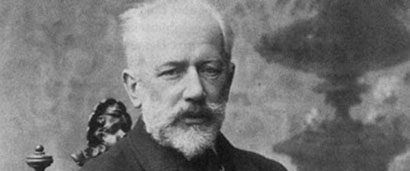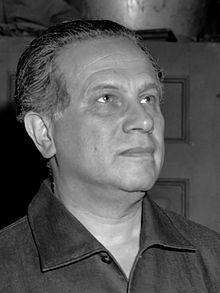
By John Schauer
Tchaikovsky’s “1812” Overture is unquestionably one of classical music’s all-time greatest hits, right up there with Beethoven’s “Moonlight” Sonata, Vivaldi’s “Four Seasons” concertos, and the “Wedding March” from Wagner’s Lohengrin. Yet it gave me pause when a friend who is not particularly into classical music asked why, in particular questioning why such a fuss is made about using real cannons, as has been done every year at Ravinia for nearly four decades. After long thought, I came up with a theory that attributes the phenomenon to recording technology. TchaikovskyUnless you’re a Baby Boomer or older, you won’t remember what a big deal it was when records started being issued in stereophonic sound in 1958. There had been recordings before then with high-quality sound—or “high fidelity,” as it was called (and often abbreviated to “hi-fi”)—after the introduction of the long-playing record in 1948. But stereo was a whole new ball game, and record companies started the laborious process of re-recording vast swathes of the monaural recorded repertoire to satisfy the demand for something to show off the new stereo phonographs consumers were acquiring. I remember one article pointing out that the first thing played by owners of the new equipment usually wasn’t music at all, but rather special sound-effects recordings to demonstrate the astonishing new technology, something like a ping-pong game or a train racing past. It was clearly a more innocent time, when adults would sit in rapt attention to hear a ping-pong ball bouncing back and forth between their speakers.
TchaikovskyUnless you’re a Baby Boomer or older, you won’t remember what a big deal it was when records started being issued in stereophonic sound in 1958. There had been recordings before then with high-quality sound—or “high fidelity,” as it was called (and often abbreviated to “hi-fi”)—after the introduction of the long-playing record in 1948. But stereo was a whole new ball game, and record companies started the laborious process of re-recording vast swathes of the monaural recorded repertoire to satisfy the demand for something to show off the new stereo phonographs consumers were acquiring. I remember one article pointing out that the first thing played by owners of the new equipment usually wasn’t music at all, but rather special sound-effects recordings to demonstrate the astonishing new technology, something like a ping-pong game or a train racing past. It was clearly a more innocent time, when adults would sit in rapt attention to hear a ping-pong ball bouncing back and forth between their speakers.
 Antal DoratiOne of the most celebrated of the new efforts was a performance of the “1812” by the Minneapolis Symphony Orchestra conducted by Tchaikovsky specialist Antal Dorati, recorded in 1958 by Mercury Records in their trademarked “Living Presence” stereo sound. The challenge wasn’t merely to reproduce Tchaikovsky’s brilliant orchestration in as life-like a manner as possible, but to try to realize what Tchaikovsky had originally envisioned for the work’s premiere: the inclusion of actual cannon shots and wildly ringing bells for the finale, a plan that had to be abandoned for the work’s first live performance. Much care was given by Mercury’s engineers to the special effects; an actual bronze cannon cast in France in 1775 (of the sort Napoleon took with him for his 1812 invasion of Moscow) was located at the West Point Military Academy, and the record included a commentary track that illustrated the various trials made to capture the most impressive sound through various placements of microphones, varying the amount of gunpowder, and manipulating the surrounding environment. The same treatment was given to the Laura Spelman Rockefeller Memorial Carrillon at Riverside Church, which stood in for the massed church bells of the Kremlin. The result was a sonic spectacular that practically blew the grille cloths off of folks’ stereo speakers and became a historical recording artifact for all time.
Antal DoratiOne of the most celebrated of the new efforts was a performance of the “1812” by the Minneapolis Symphony Orchestra conducted by Tchaikovsky specialist Antal Dorati, recorded in 1958 by Mercury Records in their trademarked “Living Presence” stereo sound. The challenge wasn’t merely to reproduce Tchaikovsky’s brilliant orchestration in as life-like a manner as possible, but to try to realize what Tchaikovsky had originally envisioned for the work’s premiere: the inclusion of actual cannon shots and wildly ringing bells for the finale, a plan that had to be abandoned for the work’s first live performance. Much care was given by Mercury’s engineers to the special effects; an actual bronze cannon cast in France in 1775 (of the sort Napoleon took with him for his 1812 invasion of Moscow) was located at the West Point Military Academy, and the record included a commentary track that illustrated the various trials made to capture the most impressive sound through various placements of microphones, varying the amount of gunpowder, and manipulating the surrounding environment. The same treatment was given to the Laura Spelman Rockefeller Memorial Carrillon at Riverside Church, which stood in for the massed church bells of the Kremlin. The result was a sonic spectacular that practically blew the grille cloths off of folks’ stereo speakers and became a historical recording artifact for all time.
The thing with new developments in technology is that there’s no going back. People now knew what the “1812” sounded like with real cannon fire and were less inclined to accept the bass drum or other simulations that had been used in concert halls previously. The matter was further sealed after Arthur Fiedler led a performance telecast for Boston’s celebration of the Fourth of July in 1974, using real cannons. Audiences went wild, and the “1812” with live cannons became a new summer concert tradition. Ravinia was fortunate to snag the services of antique weapons specialist J. Paul Barnett in 1980. So renowned were his uniquely specialized skills that when a spectacular Tchaikovsky gala was presented in Saint Petersburg to commemorate the composer’s 150th birthday in 1990, Barnett was flown in for the honors. Barnett continued to lead the artillery at Ravinia until his death in 2010.
Of course, Tchaikovsky’s music factors into the work’s popularity. Musical snobs like to turn their noses up at it. On the TV sitcom Frasier, the title character once chided his brother Niles by saying, “Remember when you used to think the ‘1812’ Overture was a great piece of classical music?” and Niles responded, “Was I ever that young?” Tchaikovsky himself was embarrassed by the work’s popularity, calling it “very loud and noisy and completely without artistic merit, obviously written without warmth or love,” but he was doing himself a disservice. The piece does exactly what it was meant to do, to generate excitement and thrills through brilliant orchestral textures and tunes while providing a breathtaking musical portrayal of Napoleon’s defeat in that fateful year. The many millions of music lovers who flock to live-cannon outdoor performances around the world can’t be wrong. Is the “1812” a great piece of classical music?
Yes. Definitely yes.
